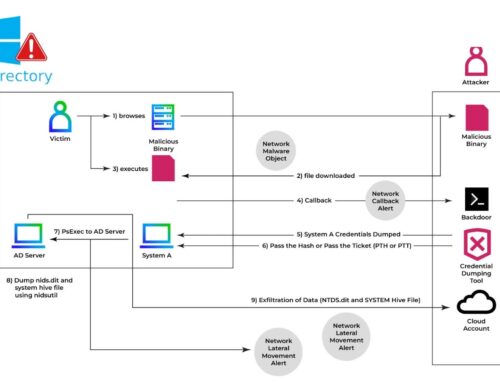
New Malicious Rust Crates Impersonating fast_log to Steal Solana and Ethereum Wallet Keys
The digital frontier of cryptocurrency development has once again come under siege, with cybercriminals deploying a sophisticated supply chain attack. This time, the target is developers leveraging the Rust programming language, and the vector is deceptively crafted malicious packages designed to pilfer cryptocurrency wallet keys.
Rust Crates Under Attack: Impersonating fast_log
Cybersecurity researchers have identified a critical threat within the Rust package registry (crates.io). Two fraudulent packages, namely faster_log and async_println, have been engineered to mimic the legitimate and widely used fast_log logging library. This impersonation forms the core of a sophisticated supply chain attack, aiming to compromise developer environments at a foundational level.
The malicious intent behind these packages is clear: embed nefarious code that systematically scans a developer’s source files for sensitive information. Specifically, these rogue crates are programmed to identify and exfiltrate private keys associated with Solana and Ethereum digital wallets. Such an attack bypasses traditional perimeter defenses by infiltrating the development pipeline itself, leveraging trust in open-source dependencies.
Understanding the Attack Vector: Supply Chain Compromise
A supply chain attack exploits the interconnectedness of modern software development. In this scenario, developers, in their pursuit of efficient code, routinely incorporate third-party libraries and packages into their projects. By introducing malicious code into one of these trusted dependencies, attackers can gain unauthorized access to systems or data that use the compromised package.
The impersonation of fast_log is particularly insidious because logging libraries are essential components in nearly every application, making them a common and seemingly innocuous dependency. Developers, often under tight deadlines, may not meticulously scrutinize every line of code in every package they use, making them vulnerable to such lookalike attacks.
The Malicious Payload: Key Exfiltration
Upon integration into a Rust project, the surreptitious code embedded within faster_log and async_println covertly goes to work. Its primary function is to scan the developer’s project directories for patterns indicative of Solana and Ethereum private keys. Once identified, these sensitive credentials are then exfiltrated to attacker-controlled infrastructure. This process occurs silently, leaving no immediate trace for the unsuspecting developer.
The impact of such an exfiltration is catastrophic. With access to private keys, attackers can drain cryptocurrency wallets, leading to significant financial losses for both developers and their users if compromised keys are part of an application or service.
Remediation Actions and Best Practices
Protecting against these sophisticated supply chain attacks requires a multi-layered approach and vigilance from the development community. Developers and security teams must implement robust practices to mitigate such risks.
- Verify Package Authenticity: Always scrutinize the names of packages before integration. Even a single character difference, like “faster_log” instead of “fast_log,” can indicate a malicious impostor. Cross-reference package names with official documentation and trusted sources.
- Dependency Auditing: Regularly audit your project’s dependencies. Tools exist that can scan your
Cargo.tomlfile for known vulnerabilities or suspicious packages. - Pin Dependency Versions: Avoid using broad version ranges for dependencies (e.g.,
fast_log = "*"). Instead, pin to specific, known-good versions (e.g.,fast_log = "0.5.1") to prevent automatic updates to potentially compromised versions. - Least Privilege Principle: Ensure that your build environments and development machines operate with the principle of least privilege, limiting the potential damage if a malicious package is executed.
- Code Review and Static Analysis: Incorporate static application security testing (SAST) tools into your CI/CD pipeline. While not foolproof against novel attacks, they can help identify suspicious code patterns.
- Monitor Outbound Network Traffic: Implement network monitoring to detect unusual outbound connections from development and build environments, which could indicate data exfiltration attempts.
- Educate Developers: Foster a security-aware culture within development teams. Regular training on secure coding practices and identifying social engineering tactics is crucial.
Relevant Tools for Detection and Mitigation
Leveraging appropriate tools can significantly bolster your defenses against malicious packages.
| Tool Name | Purpose | Link |
|---|---|---|
cargo-audit |
Scans dependencies for known vulnerabilities. | https://github.com/RustSec/cargo-audit |
| Snyk | Dependency vulnerability scanning and remediation. | https://snyk.io/ |
| Dependabot | Automated dependency updates and vulnerability alerts. | https://docs.github.com/en/code-security/dependabot/dependabot-security-updates |
| GitGuardian | Secrets detection in code repositories. | https://www.gitguardian.com/ |
Conclusion
The emergence of malicious Rust crates like faster_log and async_println highlights the persistent and evolving threat of supply chain attacks within the open-source ecosystem. Developers in the cryptocurrency space, particularly those working with Solana and Ethereum, must remain vigilant. Diligent verification of dependencies, robust security practices, and continuous monitoring are paramount to safeguarding digital assets and maintaining the integrity of the software supply chain.





